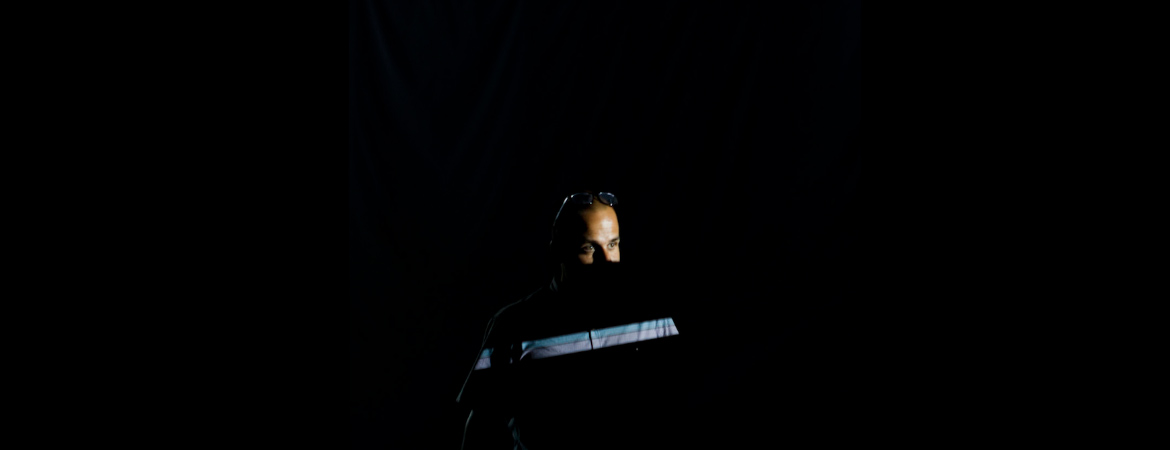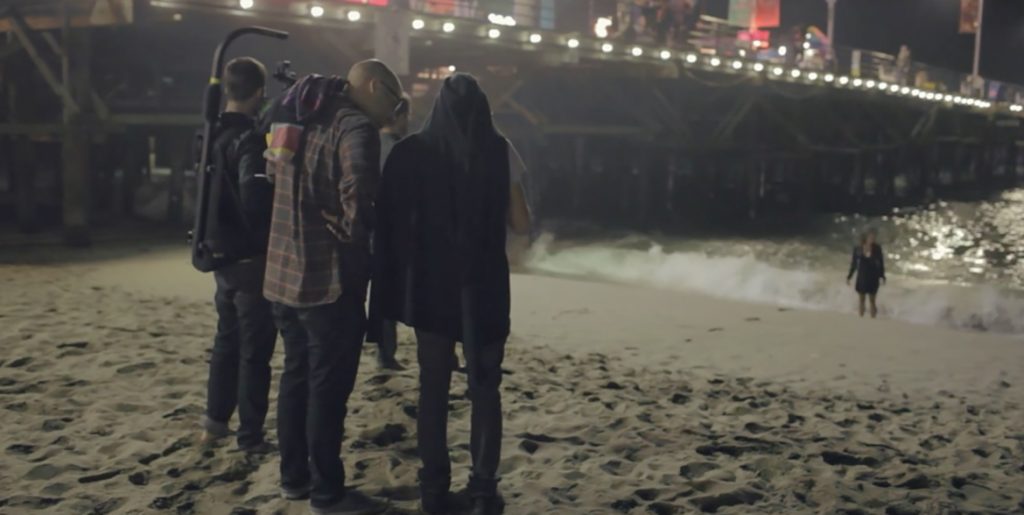On a whim a few years ago, Eliot Rausch borrowed a 7D to film the final hours of his friend’s dog, Oden. When he woke up the next morning, Last Minutes with Oden had 30,000 Vimeo views, and Eliot’s directorial career had accidentally been launched. But that’s the way things seem to go for Eliot. Without trying to control or manipulate his career path, he’s inadvertently become one of the most well-respected independent filmmakers in the business. After working for major brands like Nike and Under Armour, Eliot is now taking a step back to rediscover what brought him to storytelling in the first place. This is our conversation with the legendary Eliot Rausch.

FORGET EVERYTHING YOU KNOW
It says in your bio that you took an internship at Ogilvy & Mather and then refused to leave?
Yeah.
I want to hear about you refusing to leave.
I was a Fine Arts student at Cal State Long Beach going for a degree in graphic design and one of my professors offered me the internship at Ogilvy & Mather. Three months into the internship, a guy who’d been there for 10 years was teaching me everything within the audio/video department. I was making tape dubs and directors’ reels. At the end of the internship, Ogilvy & Mather said, “You gotta go back to school now.” I said I wasn’t going to leave. I wanted to stay. And I’d just finish my degree with night classes. They said it wasn’t allowed because my internship was up. But I said, “Well, I’m coming back here tomorrow.” So I went back, and they fired the guy who taught me everything I knew.
They fired that guy and kept you?
Yeah. I had a full-time job in the audio/video department as the tape vault manager while I finished my classes at night and got my BA in Fine Art.
So tell me about Ogilvy. That’s a legendary advertising agency.
It was special. I made some really close friends and got exposed to that whole world—it was such a departure from the world I’d grown up in. It’s a different kind of expression when it comes to the arts. Teaching myself Final Cut, immersing myself in directors’ reels, and exploring the work of the most celebrated directors at that time—that’s where I fell in love with filmmaking. And more importantly, editing. Editing became this thing that fulfilled me in a new way.
I started stringing together these shitty little passion projects from images I’d stolen. Just really crappy stuff to the music I loved. Because I had friends in a lot of punk bands, I started shooting music videos and cutting them at the agency on the side. That’s where I started earning my chops, on really crappy music videos. I met a guy (who later became a good friend of mine) who owned a company outside the agency, and two years later I made the choice to leave Ogilvy and do freelance with him, working on smaller projects as an editor.

As fast as I was being exposed to the arts, I was also being exposed to a lot of prescription pills and the greatest cocaine and the most elaborate parties and the most beautiful women. I ate it up and really took to it. I was the guy in the agency who’d get arrested and thrown in jail. And when I’d come back to work a couple of days after I’d been in the drunk tank or assaulted a police officer, I’d brag about it. They’d all laugh and ask about my weekend. I thought it was hilarious.
Inside that world, it was acceptable behavior. I was that crazy intern Eliot who’s sleeping with women and messing around and getting in trouble.
That’s interesting because, looking at your work now, there’s so much heart behind it. It feels very “unadvertisy” to me.
Ogilvy blessed me with a foundational understanding of storytelling. Like I said, I earned my chops as an editor and really found my ultimate passion—filmmaking—through the ad world. But because I was so naïve and young and sensitive and immature in many ways, I fell into a really dark hole. When I came out of it, which was ultimately due to sobriety, I ended up crashing my car and almost killed myself and a good friend of mine. I had to rediscover who I actually was and how I was approaching life.
I took the foundation that I learned at the agency, as well as the foundation I learned at Cal State Long Beach, and I applied it to a new narrative inside the world of recovery and the world of drug addicts and alcoholics. It became my reality.
It’s easy for me to say that advertising is an incestuous bullshit arena for narcissists and deluded creativity, but as a young man, it’s where I learned a lot of my skill set. It just so happened that I was an addict as well—an alcoholic. Working at an agency kind of sped it all up, which was probably a blessing that led to a full bottoming out in my life.

So, okay, you left Ogilvy and went freelance. How did you end up where you’re at today?
I have no clue, man, to tell you the truth. I’m constantly asked to rediscover the trajectory that I set out on and how it came to fruition. In large part, I studied my favorite directors, their histories and timelines, trying to figure out patterns and the ways they broke in and the ways they discovered themselves. I tried to find the same kind of specificity in my own history.
I took a job, three years sober, as an editor at Fuel TV editing crappy, episodic news reports that I didn’t want to do. I was just trying to serve mankind and do the best I could while remaining sober. I wasn’t really thinking about moving forward in my career or developing myself as a director. I just thought, I’m going to serve this job and keep my nose down, stay sober, and help other alcoholics.
I had a friend at Fuel TV who said he’d bought a 7D camera and wanted to try it out. An hour later, another friend of mine in recovery said he was putting his dog down. The next day we were out shooting a small film to honor my friend and to help another guy at work test out the camera. That became Last Minutes with Oden, which was a winner at the Vimeo Festival in 2010 and exploded my directorial career. Production companies started approaching me thereafter.
As I look back, it’s very divine. I think my logical brain wants to try calculating it all and then tell you specifically how I strived for greatness and came from nothing. The truth is that, by some crazy grace, I’ve been given opportunities; and it’s very hard to put my finger on how it all came about.
Last Minutes with Oden, that was the tipping point then?
It was just a short film. I sent it to my mother after I cut it, and she cried. I went to bed that night and felt good that I had done an act of service for a friend of mine. I was going to go to work the next day and continue to be an editor on some shitty news show, love the people around me, and keep things simple. But when I woke up, there were 30,000 views. It began to explode just completely randomly. That was the first film that gained a lot of notoriety and put me on the map.
A lot of your work deals with these very impactful, real stories. Is that what you’re drawn to, or do they just keep coming your way?
It’s probably a combination. It’s hard to tell where it comes from. But I can tell you that the best thing I’ve done in my life is emptied myself out and considered myself a vessel, a kind of conduit to help crystalize stories and bring them to fruition. Whenever I get in the way or I have some kind of forethought or intentionality behind my creative endeavors, they usually fail. These things must come from the sky. If I’m lucky enough to have my ears open and my heart open, then somehow they’re created.
I’m curious about your process then. How do you find these stories, and how do you bring them to life? For example, Find Your Understanding. That didn’t seem re-created. Were you actually there for the wedding?
No. The wedding footage already existed. I had 24 hours to fly to Atlanta, interview the father, and try to craft the first and second act of that story. It was very simple. It was me and a camera operator. We went there and did what we could. I sat with the father at a table and talked heart-to-heart with him about life. That part became the voiceover, and the getting to California part was actually a trip he and his wife were making out West to visit their daughter. It had nothing to do with the wedding. That was all constructed on the back end by an editor and the ad agency to make it feel like it was one seamless narrative.
It’s hard for me to take credit for that film because it was already a masterpiece without ever being filmed. On paper, it was bound to win. People have asked me about my intentions with it or my involvement. I just served as the director. It was 24 hours of sitting with the father trying to craft the first two acts. On the back end, it was his film and his daughter’s film. And three months later, he passed away from cancer.
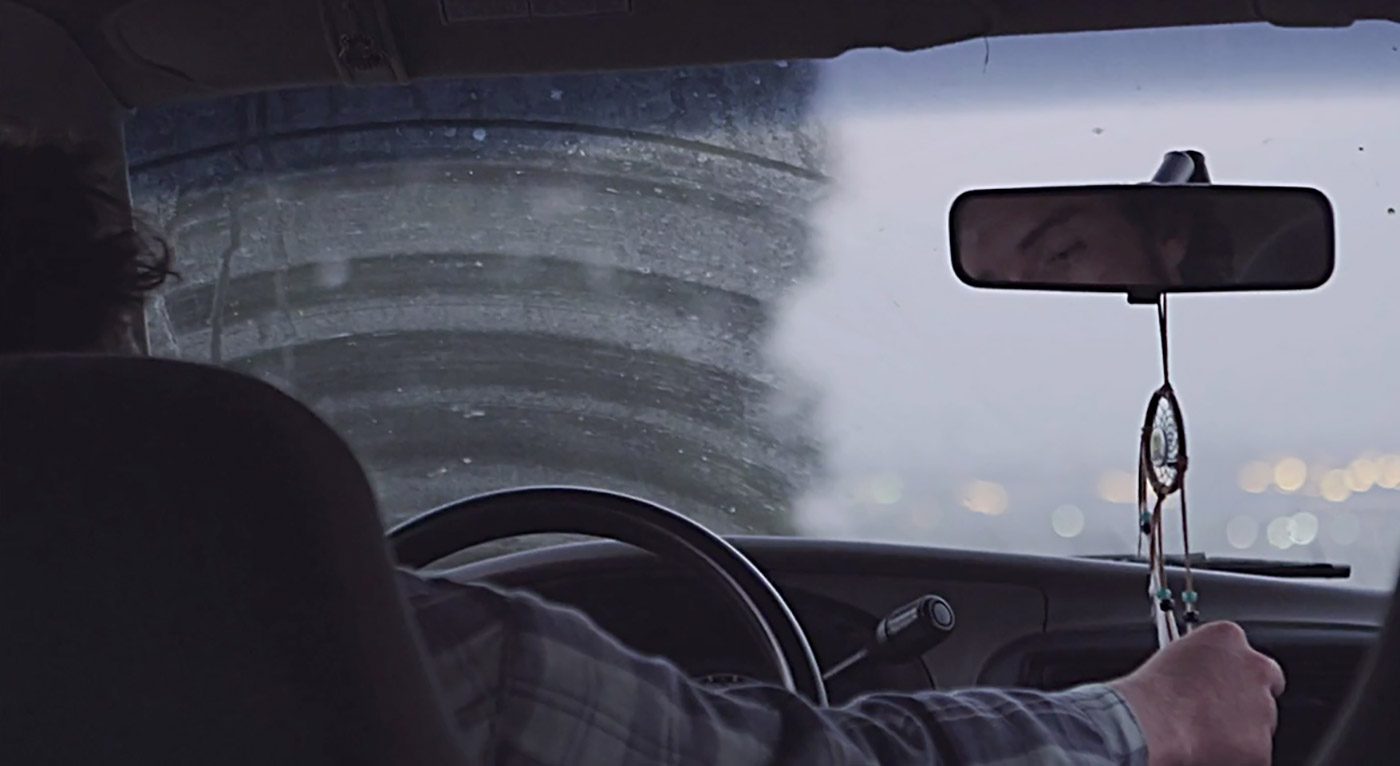
Oh wow.
It was his last love letter to his daughter. It’s one of those things that’s hard to take credit for.
How much of what you do is discovery? When you were talking with the father that day, did you already have a story in mind, or were you figuring it out as you went?
It depends on the project. I would say I’m definitely a filmmaker who wants to have more space. I want the content and the story to evolve and open up to us rather than being sculpted and prescriptive.
It’s a hard thing in the ad world because everything needs to be proven ahead of time and down on paper, sold through that way. During my personal projects, it’s always about gut instincts and a relational connection to the subject matter and allowing that story to open up and take form. I usually have a pretty strong sense of my three acts and a strong sense of the arc. And it usually doesn’t go as planned, which is a beautiful thing. It’s a combination of having some kind of intention and then giving it the space and the breathing room to tell itself.

Would you say there are three acts to Last Minutes with Oden?
I didn’t even know what “three acts” were at that time. I’ve been asked to break that story down and tell how I formulated it and crafted it. But it was all instincts. The thing I need to remind myself of is that I was clueless. I cut that film in two or three hours when I came home. It was a two- or three-hour production with two cameras and my friend. There was no sense of formula or, I don’t know, approach.
I worked on a television show for two years. It was about 24 episodes, and even then I was clueless about how to tell stories.
When I was creating that series, I was directing and producing and editing, just learning that instinctual way of creating tension and release and catharsis. Creating stories from a very pure approach. There was no film school background, no book I’d ever read, no thinking that a certain formula wins. It was always just what feels right.
What’s it like now? It sounds like you know a bit more what you’re doing.
I’m constantly absorbing details about the craft and strategy and plot structure, really breaking down film theory and the way story works. I love to have all of these inputs and absorb it all. But now, at the age of 32, I think what I’m after more than anything else is trying to forget what I’ve learned. There are a lot of formulas that win and a lot of structures that guarantee success, but it’s counterintuitive to some of my more successful films. It’s there in the subconscious now. It’s a sounding board. But I’d like to be childlike again in the way I approach a story and just forget about any kind of formula that’s going to guarantee a win.
Were there specific resources that really helped you understand the craft?
Sure. I have them right here. The Film Director’s Intuition by Judith Weston is a really profound book. Directing Actors (also by Judith Weston) and Save the Cat! The Last Book on Screenwriting You’ll Ever Need by Blake Snyder. What else? The Art of Character by David Corbett. Judith Weston is a really powerful source for directors who are trying to better understand actors. She has a course that I haven’t taken yet, called “Acting for Directors.” Her two books are really profound.
Outside of those, I’ve probably forgotten everything I’ve read. Subconsciously, it’s a good sounding board. Save the Cat! really helped me understand the structure of story, which has been really wonderful and really sad too. It’s kind of like the Wizard of Oz has been revealed, and he’s no longer this mystical thing.
It’s a weird balance—intuition versus knowing what you’re doing.
With the stage that I’m at right now—the level of work I’m doing and how much money is on the line—it would be foolish for me not to have a really strong sense of the world and the part of history that I am in. It’s naïve for me to think it can always be just intuition—especially in the ad world. I just worked on a massive Nike job for the Olympics and a huge project for Veterans Affairs. If I had gone into those jobs as a young, naïve filmmaker who strictly based everything off of intuition, I would have been a poor leader. I wouldn’t have been definitive enough in my principles to guide the story appropriately.
Knowing the principles is very helpful for creating structure and selling a project so that later, when you’re on set, you can have the freedom to explore, create, and be more intuitive.
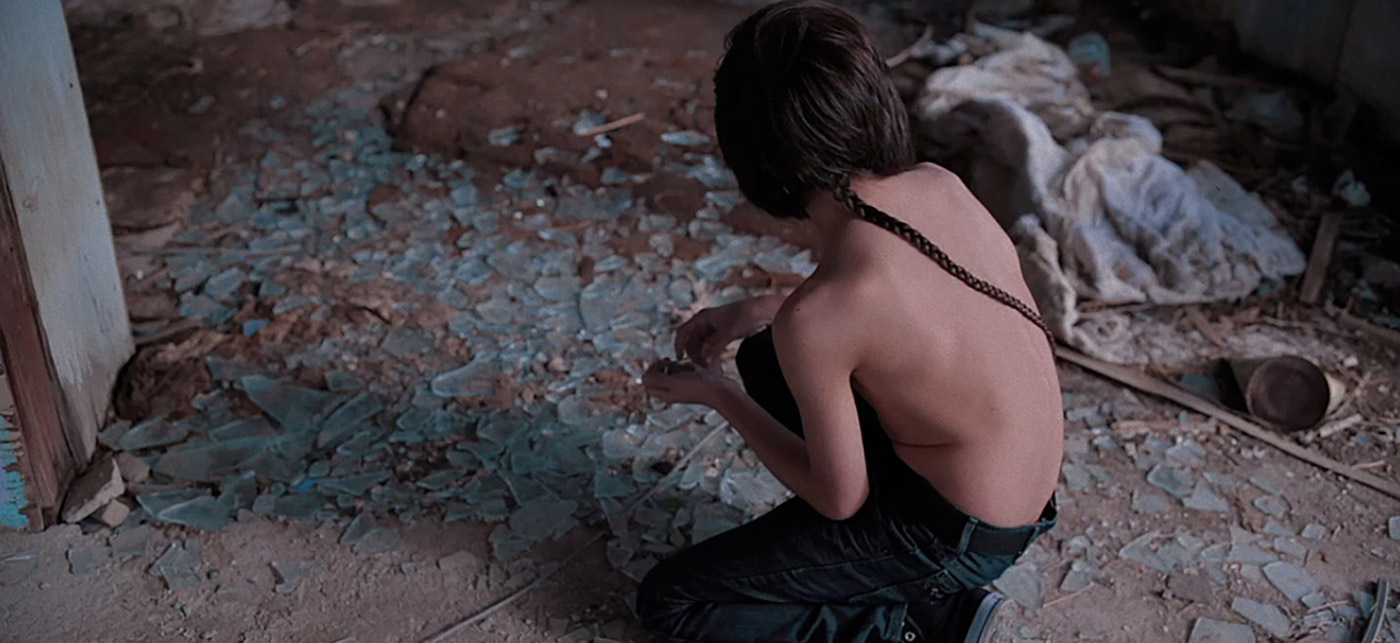
I think more than anything, I just needed the language. I still need the language. Because it’s a whole other language when it comes to filmmaking and being able to understand why a character isn’t working at a certain point and why there is a flaw in the story arc, and being able to articulate those things to a very large group of people. It requires a deep understanding of the language rather than me saying, “I just think it’s better that way.”
A lot of the projects you work on are highly dramatic. Have you learned anything about how to tell those kinds of stories?
A lot of it is melodramatic. A lot of it is morose, heavy, and nasty. I think I have a passion for human interest stories that are more on the morose side because those are the films that always moved me.
I’m not sure if it’s because I’ve had shit go down in my own life and I understand the depths of darkness—how powerful the darkness can be when it’s juxtaposed against the light. I’m not sure if it’s because I’ve been an underdog most of my life, so I understand the arc of the underdog. Or maybe it’s strictly because I see it as a powerful, emotive tool to tell a story. Either way, it’s the corner I’ve been painted into in the commercial world. Sometimes it fails me because in the ad world, people don’t want their aspirational brands to have a morose arc.
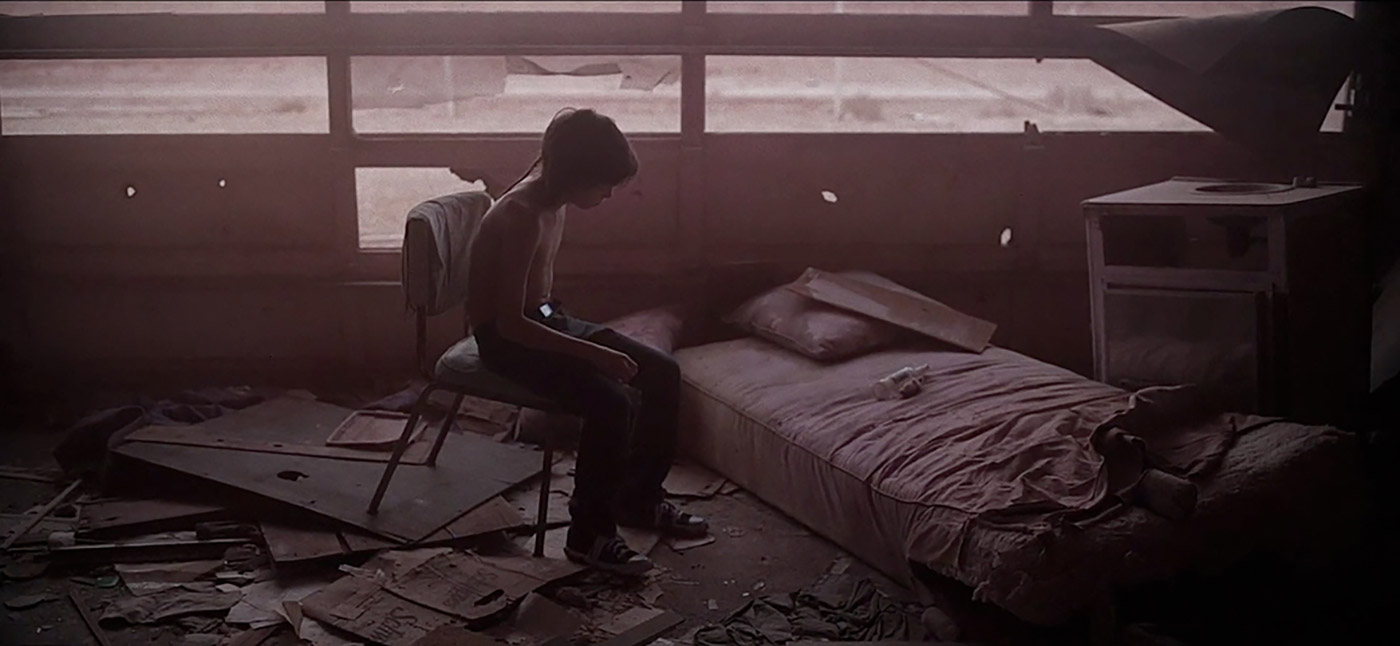
Maybe I’m more of a pessimist or maybe a realist. There are a lot of directors who see the glass half full. Many see the glass overflowing. I just see the glass as it is. I think my philosophy and perspective on life is that not everything is aspirational. Not everything works out. Not everything is this joyous winning story. The films that have always resonated with me are films that are truthful. I feel manipulated when the third act is this crescendo of emotion, it all works out, and everyone goes home happy. I think that’s more bullshit than anything.
It’s definitely not my intention to constantly make people cry. It’s not my intention to make morose films, but I feel more connected to films that explore humanity in a very truthful way. I feel like humanity struggles at its core. There’s always tension in humanity. What I explore more than anything else is that tension.
But within the struggle and tension of life, there’s always hope. There’s transformation when we allow ourselves to let go. There’s this narrative that I believe we’re afraid of in our culture and in our generation. Whenever there’s struggle or pain or something that’s not working—whether that be sickness or failure or death—we run from it rather than facing it head-on and walking through it. We are looking for avenues of upward mobility. We’re looking for trajectories that are winning formulas, rather than altruistic ones where we put ourselves second or embrace failure or die for the greater good.

Do you find it hard to bring that philosophy to commercial work? Like, is Nike on board with this?
It’s a fine balance. It’s hard because in the world of advertising, you have to sell. You have to push product. You have to convince someone of something. If you’re too abstract or morose or even altruistic in your storytelling approach, that’s not always going to sell.
For me, that’s part of my tension. How much am I selling out just to make money and appease a brand? The thing I’m baffled about this year is that I’ve worked on seven projects that are extremely fulfilling. They have such a truth to them. The largest project was for Veterans Affairs. I suggested to them that amputees are coming back from serving overseas and their sons don’t recognize them. We should embrace those stories. It’s not always about coming home and kissing your wife. It’s about harder stuff too. I said if we could embrace the hard parts of the story, it will connect with the veterans. And they went for it.
To me, there are constant victories when you have authenticity. It’s not just about shallow depth of field and saturated footage. It’s about truth. It’s exciting to see brands and agencies that are looking to better understand what that truth might look like.
Yeah, I think there’s this aesthetic of authenticity that’s super popular right now. It’s an Instagrammy authenticity. We want to make stuff look like it’s real and raw, but it’s never been less so.
Exactly. I completely agree with you. I think a lot of films don’t resonate because we’ve figured out the aesthetic that works, but there’s something missing that we can’t put our finger on. And that thing is that it’s an inauthentic storyline or it’s an inauthentic emotion or it’s manipulative. You can’t wave your wand and put your authentic filter over that thing, just hoping . . . expecting it to resonate. It won’t. Truth is truth. Humanity recognizes truth when it sees it. It transcends any kind of formula or manipulation.
I wonder if sticking to your convictions the way you have has helped bring those projects your way. If you become known for doing a certain type of work, that’s the work people call you for. So the more you sell out, the more you’re asked to sell out.
I’m speaking at Masters in Motion in December, and that’s pretty much the point of my talk. Earlier this year, I was at the peak of my career. I was taking every job that was coming my way, and I couldn’t have been more lost. I couldn’t have been more separated from my heart and from who I was as an artist. I felt completely void and empty of life and emotion. I really was passionless. I had to literally strip away everything in my life and turn down several jobs to figure out what had transpired.
Ultimately, I had subscribed to a certain kind of trajectory and upward mobility in life that was about winning and doing greater work and being more powerful and being a stronger brand—appeasing the people who believed in me and pushing forward to become stronger, faster, and more efficient. And that was never the reason I started doing this work.
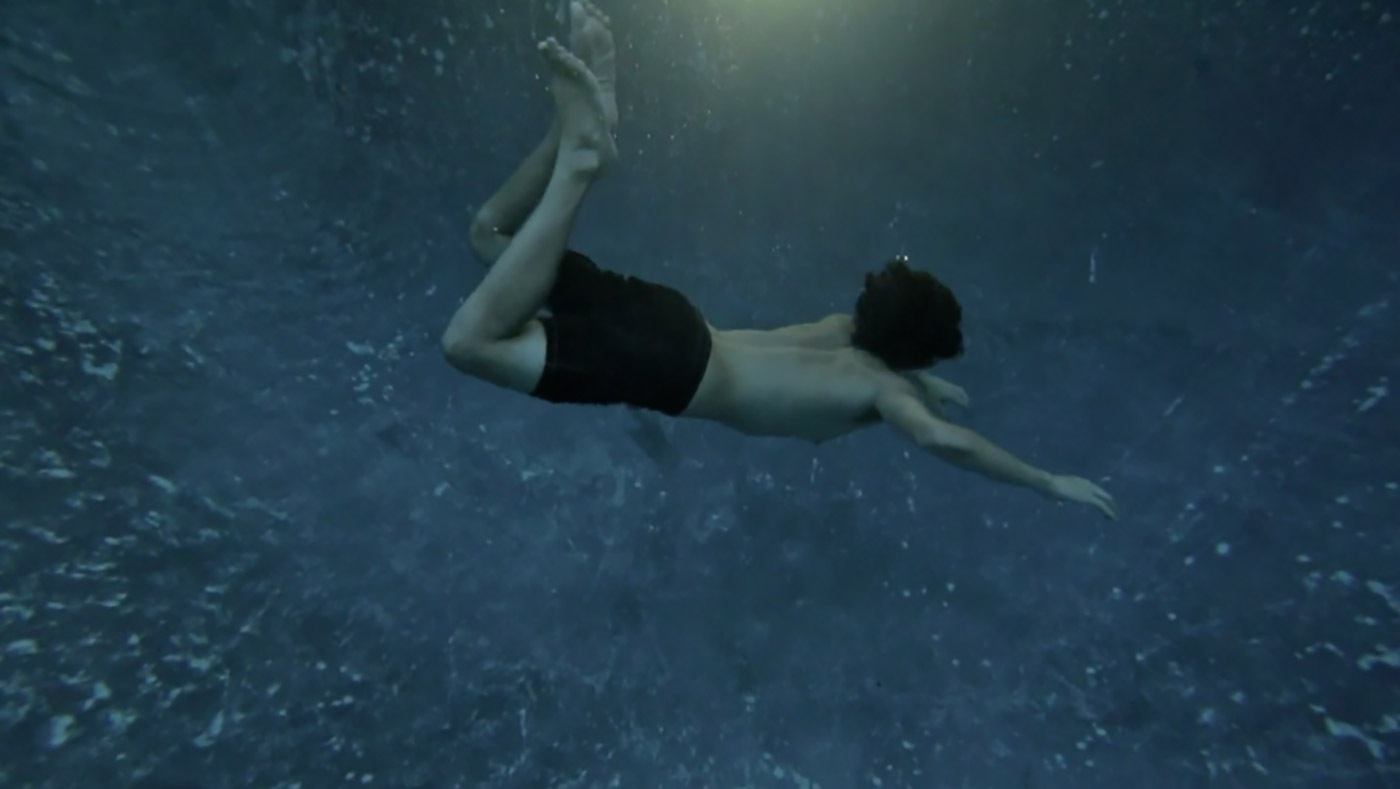
It’s how we were raised: If you’re not moving forward, if you’re not making more money, if you’re not taking on more responsibilities and becoming busier, more successful, then you’re useless and you’re not virtuous anymore. That’s the pressure. And I think that pressure causes burnout. I think it causes an implosion of the psyche for a creative being. For myself, I originally started this thing from a very altruistic perspective, and I wanted to help humanity. It was never about the money. It was never about this personal brand. It was never about success. It was never about trying to build up enough followers so I could finally validate my existence. It was about trying to lay down my life and serve the greater good so the gifts in my life could be a conduit for other people.
I think the challenge isn’t necessarily selling out or taking on work that you don’t want to take on. It’s about being connected to who you actually are and understanding why you’re doing what you do.
For an artist who is trying to remain pure and honest to who you are, it’ll be a challenge to balance the commerce and the art and figure out what that world looks like for you. I’m okay with that. Today, at least. It’s not going to be easy. I’m not going to find a formula. I’m not going to find some kind of safety net or guarantee. It’s going to be me constantly trying to stay grounded and filter everything and move forward slowly. It could very well mean a less successful career. It could very well mean less work. It could very well mean less attention from my peers. I think I’m getting to a place where I’m okay with that.















































































